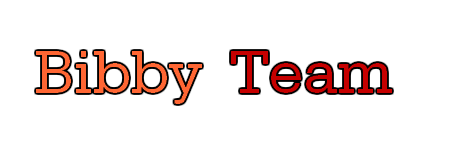
Nothing too special here, This is a pre-made Live-Render DMG screen effect for use in a Monochromatic game.
For best results, you should limit the shades to 4.
Arrow keys to move around
W and S for Contrast knob.

|
Posts: 1652
Status: Offline Group: Member Member: #52 |
Mar 6th, 2016 @ 8:51 pm Perma-link
http://www.mediafire.com/download/s58vvvjl3hu7nm4/DMG.zip <----Download link
 Nothing too special here, This is a pre-made Live-Render DMG screen effect for use in a Monochromatic game. For best results, you should limit the shades to 4. Arrow keys to move around W and S for Contrast knob. |
|
Never change your avatar
Posts: 3199
Status: Offline Group: Admin Member: #1 |
Mar 7th, 2016 @ 12:16 pm Perma-link
This is pretty nifty. I hope someone uses this for something.
Course clear! You got a card.
|
|
... really? That's what you call Guile?
Posts: 650
Status: Offline Group: Member Member: #104 |
Mar 8th, 2016 @ 3:23 pm Perma-link
i'm wondering if there is any way to port this to fusion 2.5. how exactly did you implement this, nite?
Find my music here!!
Friendly Dictator So what can be superior when compared with paying out half the price for brand name children? wow, if brand name children are on sale, maybe i can stop buying all these cheap knockoff children Bibby OK... even I'll admit that the Oakland Raiders' performance might be a valid reason to use the interesting words. |
|
Posts: 1652
Status: Offline Group: Member Member: #52 |
Mar 8th, 2016 @ 4:11 pm Perma-link
It's really just a trick of manipulating shaders.
The screen is a separate object from the rest of the Gameboy, leaving the Gameboy as a frame. The screen is used as a filter, on multiply blend mode. There is a white lined grid underneath the screen, which measures at exactly 160 x 144 cells, at an 8X scale of a standard gameboy screenshot. this is scaled down to match the dimensions I want the game to be displayed on the gameboy screen. This grid gives the effect of the pixels being seperate A white boarder frame is also placed under the grid, to limit how much of the gameplay window is shown. A magnification lens object is used undernieth this to upscale the gameplay layer, to match the pixel grid. And of course, the gameplay, which is nothing special. It has a forced monochromatic effect applied to simplify conversion One thing that went entirely overlooked however, is that I deliberately left the calibration incorrect. This, is to encourage editing, as well as being a tattle on those who want to use it in a lazy manner. It should actually look like this:  http://www.mediafire.com/download/6zeqvk5euhs3q1s/dmgtest2.zip --- Edited by: The_Shadow, Mar 8th, 2016 @ 4:15 pm |